Fun for All at the Scarsdale Forum Winterfest
- Details
- Written by: Joanne Wallenstein
- Hits: 4414
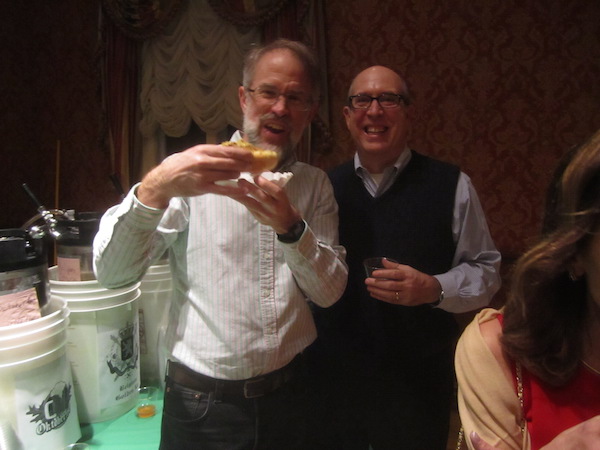 The Scarsdale Forum held an "indoor block party" at its seventh annual Winterfest on February 7 at the Scarsdale Woman's Club. The event featured home-brewed beers crafted by Forum member Bruce Wells as well as a buffet dinner prepared by Jensina Olson. Local bakers contributed delicious desserts. A convivial night for all.
The Scarsdale Forum held an "indoor block party" at its seventh annual Winterfest on February 7 at the Scarsdale Woman's Club. The event featured home-brewed beers crafted by Forum member Bruce Wells as well as a buffet dinner prepared by Jensina Olson. Local bakers contributed delicious desserts. A convivial night for all.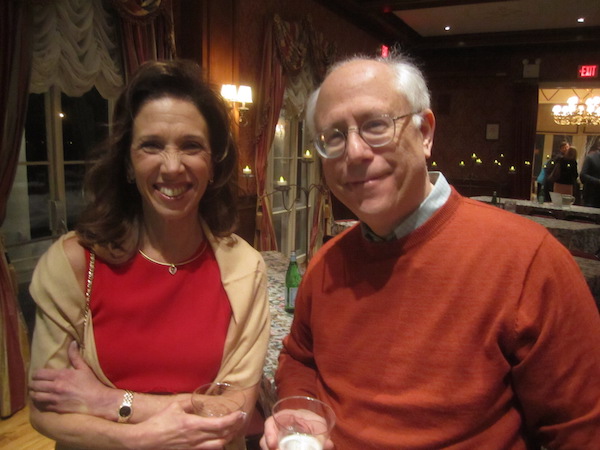
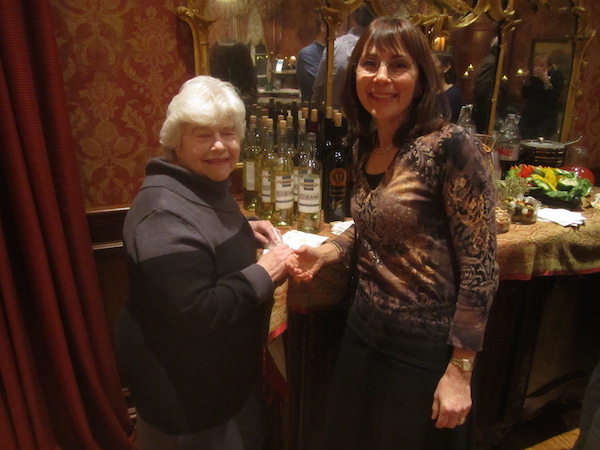
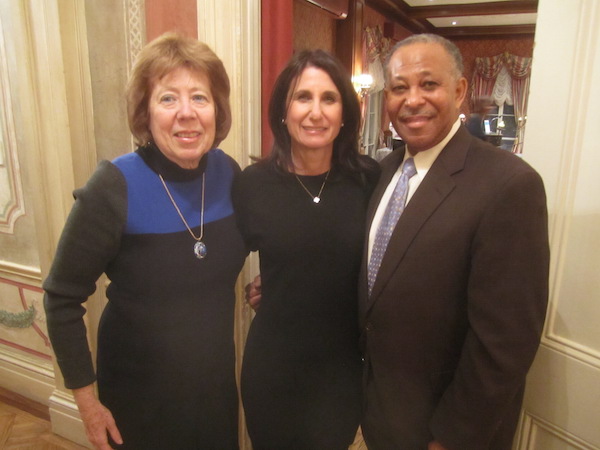
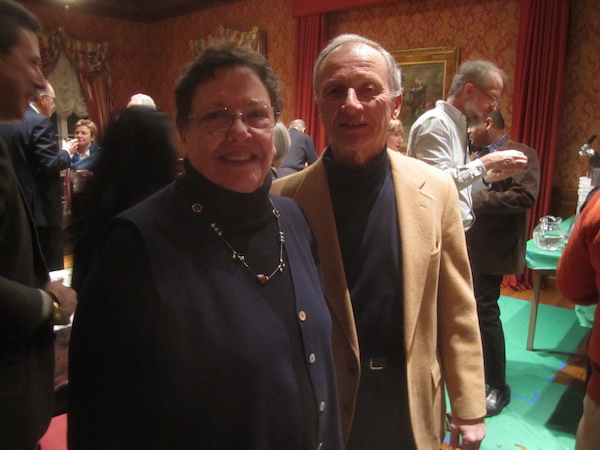
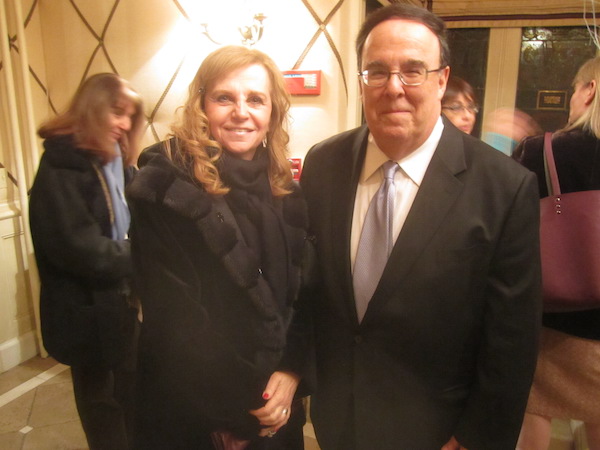
Adult Softball and Village Election
- Details
- Written by: Joanne Wallenstein
- Hits: 4148
 Sign up for Adult Softball League:
Sign up for Adult Softball League:
The Scarsdale Recreation and Parks Department is looking for teams for its 2015 season. Games played on Tuesdays and Thursdays at 6:30 PM. The season runs from June 2 to August 15. If interested, please contact Rich Massaroni at Scarsdale REC @ 914-722-1160.
Register to Vote in Village Elelction:
The Village of Scarsdale will hold an election for Mayor and Village Trustees on Wednesday March 18th. All Election Districts will vote at Scarsdale Village Hall. Hours of the election are 6 a.m. to 9 a.m. and Noon to 9 p.m.
If you are not a registered voter but want to vote in the Village Election on Wednesday, March 18, 2015, the last day to register with the Westchester County Board of Elections is Friday, March 6th. You may pick up a mail-in registration form at Village Hall, or you may go directly to the Westchester County Board of Election, 25 Quarropas Street, White Plains.
In order to register to vote, you must:
• Be a U.S. Citizen
• Be 18 years of age by the date of the election in which you want to vote
• Live at your present address at least 30 days before an election
• Not be in jail or on parole for a felony conviction
• Not claim the right to vote elsewhere.
For registered voters who will be out of Westchester County on Village Election Day, an absentee ballot can be obtained by filling out an application form at Village Hall or by requesting one by phone or mail. March 10th is the last day for the Village Clerk to receive an application for an absentee ballot which is to be mailed to a qualified voter; however, applications made in person can be accepted until Monday, March 16, 2015.
For more information, call the Village Clerk's office at 722-1175.
Budget Process Begins: School Tax Estimated to Rise by 2.64%
- Details
- Written by: Joanne Wallenstein
- Hits: 8539
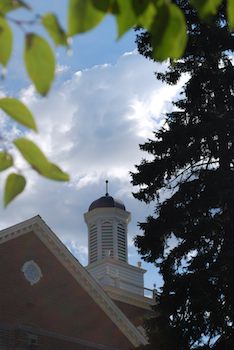 The Scarsdale Schools administration unveiled their initial budget estimate for the 2015-16 school year and the good news is that the current estimate will require a 2.64% tax increase for Scarsdale and Mamaroneck strip residents, which is .29% below the allowable tax cap of 2.93%. Purvis told the Board that the school budget has been rebuilt from the ground up, and included some organizational changes, restructuring of the leadership of the athletics program at the high school, two new reading specialists for the elementary schools and delaying the start of Spanish language instruction to second grade rather than first grade.
The Scarsdale Schools administration unveiled their initial budget estimate for the 2015-16 school year and the good news is that the current estimate will require a 2.64% tax increase for Scarsdale and Mamaroneck strip residents, which is .29% below the allowable tax cap of 2.93%. Purvis told the Board that the school budget has been rebuilt from the ground up, and included some organizational changes, restructuring of the leadership of the athletics program at the high school, two new reading specialists for the elementary schools and delaying the start of Spanish language instruction to second grade rather than first grade.
As school enrollment drives the budget, Assistant Superintendent Joan Weber reported that demographers estimate that there will be a 1% decrease in student enrollment or 47 fewer students for 2015/16 over 2014/15. She noted that the incoming kindergarten class is projected to have 313 students, which is 44 less students than the outgoing high school class.
She provided the following estimates for the number of projected students and classes at each of the five elementary schools:
Schools Students Sections
Heathcote 392 students 19 sections
Greenacres 399 students 22 sections
Edgewood 401 students 20 sections
Fox Meadow 462 students 24 sections
Quaker Ridge 466 students 26 sections
Overall, Weber projects a decrease in 2 elementary schools sections from 107 sections this year to 105 next year. In the next four years, the demographer estimates that the school population will decrease by three tenths of a percent.
Among the proposed staffing changes in the plan, is combining the current positions of athletic director and physical education coordinator at the high school into an administrative job with responsibility for athletics, physical education and health.
There will also be changes in the technology area with the assignment of a director of information systems and other staffing adjustments. Details will be provided at the next budget study session on Monday February 9 at 6:30 pm. The technology department of 16 people would all be housed in one office. There will be an overall increase in .05 positions in civil service staff to add a director of information technology and an administrator to oversee the audiovisual program.
At the elementary schools, due to the reduction in enrollment, one less classroom teacher would be needed. The administration is proposing a delay in the commencement of Spanish instruction from first grade to second grade, and the addition of an ELA helping teacher and 2.5 reading teachers to help first and second graders who are struggling with reading. According to Assistant Superintendent Lynn Shain, the district "Wants to have more time to deliver literacy instruction in English – kids first language. We looked at the first grade Spanish program and decided to take Spanish instruction out of grade one to allow us to pick up two forty minute periods a week to focus on literacy learning."
At the middle school, an additional special education teacher is needed for the parallel curriculum students.
Reviewing the central administration and facilities budget, Linda Purvis highlighted line items that changed over the previous year.
She said that the administration would like to reinstate a reserve for tax certiorari claims and a reserve for emergency repairs which were both eliminated in previous budgets.
The district has seen a big increase in utility costs for both electricity and heating and projects a $190,000 increase for electricity and a $108,000 increase in heating costs.
The district's phone system is antiquated and the service provider will phase out the service of the phone system that is also tied into the paging system. Purvis estimates that the new system could cost $300,0000.
Purvis then reviewed almost $1.9 mm in proposed plant improvements to the district's facilities:
Edgewood: Repair of drainage near the oil tank $65,000
Fox Meadow Playground Equipment $95,000 (she indicated that the previous board made a policy decision to fund playgrounds rather than ask the PTA's to raise money to do it.)
Re-orientation of the school office to provide additional security $395,000
Heathcote: New fire alarm: $280,000
Middle School: Replace and relocate tech room dust collection system: $70,000
Highs School: Renovate Dean Field: $270,000 to address ruts, depressions in the ground, drainage issues, and fence repairs
Paint exterior trim $80,000
District wide roof repairs $300,000
Upgrade ventilation and renovate district technology office $240,000
Drainage/paving bus compound $100,000
Purvis noted that the facilities budgets represents less than 1.3% of the total district budget. The National School Board Association recommends that school boards spend 2% on building maintenance and repairs.
Watch the budget study session on the Scarsdale Schools website here. The next budget study session will be held on Monday February 9 at 6:30 pm at Scarsdale High School.
Realtor Frank Ledermann Passes Away
- Details
- Written by: Joanne Wallenstein
- Hits: 7414
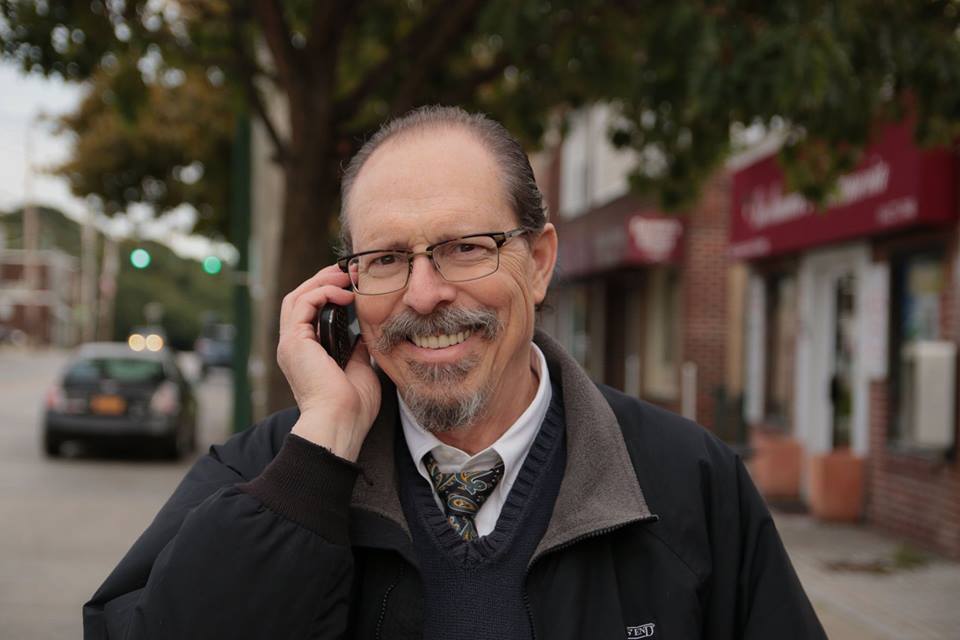 Lifelong Westchester resident Frank Ledermann, of Houlihan Lawrence, Scarsdale, passed away Tuesday, January 13 at the age of 68. Mr. Ledermann had been active in real estate since 1980. Prior to that he had been a passionate and creative English teacher in Tuckahoe for 33 years. Frank was also a gifted painter, photographer, gardener, antiques collector, poet and cat lover. He had a sharp and entertaining wit, and was always concerned with the welfare and well-being of his family, clients and colleagues.
Lifelong Westchester resident Frank Ledermann, of Houlihan Lawrence, Scarsdale, passed away Tuesday, January 13 at the age of 68. Mr. Ledermann had been active in real estate since 1980. Prior to that he had been a passionate and creative English teacher in Tuckahoe for 33 years. Frank was also a gifted painter, photographer, gardener, antiques collector, poet and cat lover. He had a sharp and entertaining wit, and was always concerned with the welfare and well-being of his family, clients and colleagues.
According to his brother Peter, Frank Ledermann was the child of parents who survived the Holocaust and he himself was a survivor of a very rare "orphan" cancer that only one doctor in the world could treat. The doctor rescued Ledermann 12 years ago but unfortunately the treatment resulted in a return of a different type of cancer within 10 years. He was hit with Leukemia and died in just three weeks.
Lewis Arlt of Houlihan Lawrence remembered Ledermann with these words; "He was a tireless, highly successful realtor and a top producer for Houlihan Lawrence, holding multiple professional designations including ABR, CBR, CRS, GRI, and SRES, and winning the gratitude, respect and love of his Houtlihan Lawrence teammates for his kindness, generosity and great good humor. Mr. Ledermann is survived by his brother Peter, his sister Jacqueline, his nieces Marjorie and Jamie, and his vast assortment of friends and colleagues who, together with his extended family, were his most treasured "collection." The world is by far a poorer place with his passing, but the world to which he has gone is richer for his arrival."
Stefan Weinberg, Founder of AMHAC Passes Away at 93
- Details
- Written by: Joanne Wallenstein
- Hits: 13839
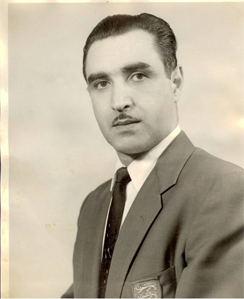 Former Edgemont resident Stefan Weinberg passed away at the age of 93 in Aventura Florida on January 11, 2015. Founder of AMHAC with his wife Anna, Weinberg was well-known in Westchester for his air conditioning and heating company, which is now run by his three sons, Saul, Bill and Ted.
Former Edgemont resident Stefan Weinberg passed away at the age of 93 in Aventura Florida on January 11, 2015. Founder of AMHAC with his wife Anna, Weinberg was well-known in Westchester for his air conditioning and heating company, which is now run by his three sons, Saul, Bill and Ted.
Stefan Weinberg was born in Krakow, Poland in 1923. He enjoyed a normal childhood until the age of 16, when the Germans invaded Krakow and stripped the family of their home and belongings, confining them to the ghetto. They were not given food and struggled daily to find something to eat. According to an article about Weinberg in Westchester Magazine, initially there were 65,000 Jews in Krakow and only 2,000 survived the war. In 1943, after two years in the ghetto, Weinberg and his mother were moved to Plaszow concentration camp. Eight days after they arrived, his 47 year-old mother died of typhus and Weinberg buried her in a mass grave in the camp.
For the following two years, Weinberg dug mass graves, retrieved corpses and burned bodies –and then was moved to two more concentration camps Gross-Rose and ultimately Buchenwald where he worked in the camps stone quarry. He was fed so little that his 5'11" frame shrunk to just 76 pounds.
As the war came to a close, the prisoners were forced to march without food or water to 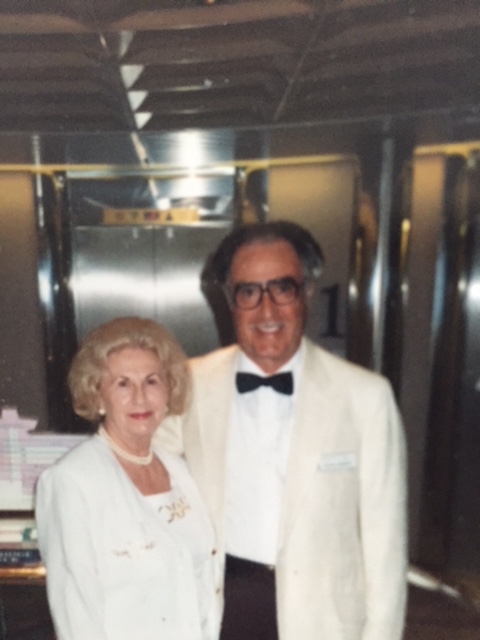 railway stations, only to be stuffed into train cars and shipped off elsewhere. Weinberg recalled that about a third of prisoners were shot because they could not walk. Weinberg escaped, hiding out in empty barns and eating raw food until he was captured again by the German police. After denying being Jewish, they let him go. He was then picked up by American soldiers who gave him food and a place to sleep. From there, he made his way to Prague where he was reunited with Anna Unger, a young woman he met at the Plaszow camp. They were married until her death in 2012.
railway stations, only to be stuffed into train cars and shipped off elsewhere. Weinberg recalled that about a third of prisoners were shot because they could not walk. Weinberg escaped, hiding out in empty barns and eating raw food until he was captured again by the German police. After denying being Jewish, they let him go. He was then picked up by American soldiers who gave him food and a place to sleep. From there, he made his way to Prague where he was reunited with Anna Unger, a young woman he met at the Plaszow camp. They were married until her death in 2012.
Stefan and his wife Anna made their way to the United States, settling in Lancaster, PA. Stefan took a job with Holland Furnace Company cleaning furnaces for a modest weekly wage. He applied himself and rose through the ranks of the company and was offered the Presidency of Holland Furnace, but turned it down and opened a new company.
The family moved to Edgemont and started AMHAC, one of the premiere HVAC companies in the New York/Metropolitan area. Today, their sons continue to run the business.
Weinberg lived with memories of the concentration camps until his own death on January 11, 2015. He was a founding member of the Holocaust and Human Right Education Center of Westchester and spoke throughout the County to audiences young and old about his experiences during the war, educating them to "never forget."
Weinberg's funeral was held at 9:30 am on January 15 at Westchester Reform Temple in Scarsdale. He is survived by He is survived by his threesons Saul, Bill and Ted; daughters-in-law Audrey and Franne. He was the devoted grandfather of Blake, Jordan, Taylor and Adam.
Donations may be made to The Holocaust and Human Rights Education Center, 4 West Red Oak Lane, White Plains, NY 10604.






